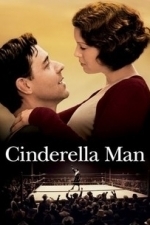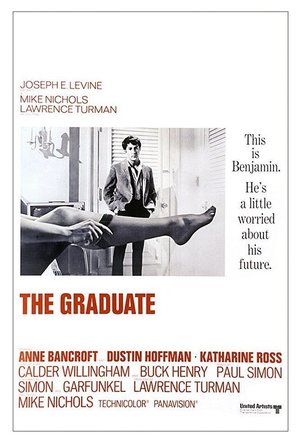Search

The Tunnel - Season 1
TV Season Watch
Based on the original Swedish series "The Bridge," this British crime drama centers on British and...
Gareth von Kallenbach (965 KP) rated Cinderella Man (2005) in Movies
Aug 14, 2019
In the late 1920’s Jim Braddock was a boxer with a future. After many wins, he was poised to take his place as one of the greatest boxers of his time. Things took a bad turn for Jim in 1929 when he first lost a 15 round decision to Tommy Loughran, and then lost everything in the Stock Market Crash.
In the new film Cinderella Man Academy Award winner Russell Crowe stars as Jim Braddock in one of the most satisfying films in recent memory. Down and almost out, Braddock struggles to provide for his wife Mae (Renee Zellweger), and his three children. A series of hand injuries has forced Jim to resort to fighting in pick up fights, as he is unable to find work as a laborer.
Things go from bad to worse for Jim when he breaks a bone in his hand and is unable to provide entertainment for those in a local boxing match which results in the suspension of his boxing license. With his electricity turned off in the dead of winter, and his children coughing from the effects of the cold, Jim is forced to hide his injury and seek work as a day laborer to get by.
As Jim and Mae debate sending the kids to her sister in order to better provide for them, a ray of hope arises when Jim’s old manger Joe Gould (Paul Giamatti), says he has arranged a fight with a $250 payday.
Since Jim’s hand has healed, he takes the fight seeing it as a chance to get caught up on his bills. Fate steps in when in a shocking turnaround; Jim wins the fight via knock out, and captures the imagination of the local sports community. Before long, Jim is racking up win after win and improving his lot in life as he prepares for an unexpected title shot against the devastating and unbeaten Max Baer (Craig Bierko).
The fact that Baer has killed two men in the ring is a cause of great stress for Jim and Mae as she worries for the safety of her husband while Jim sees the fight as his chance to provide some financial security for his family.
Anyone who has seen the trailer can be sure that the big fight will take place, and that the underdog will find himself in a battle against overwhelming odds, but what makes Cinderella Man such a captivating film is the captivating human drama that propels the film. There have been many boxing films ranging from “Rocky” to “Raging Bull”, that have depicted the graphic action of the ring, but few have reached the depths of human drama that this film does. Jim is not looking for glory, he is simply looking to provide for his family the best way that he is able be it in the ring or hauling cargo at the docks.
Crowe is riveting as he is able to convey his characters plight to the audience without making it seem forced or heavy handed. Where Crowe truly shines is his ability to mix the emotional sequences of the film with the athletic and action filled ring sequences and not lose any of his character. Far too often actors fail to convince in one aspect when they try to mix drama and action, but Crowe easily transitions between the demands of the role proving again that he is the most gifted actor in Hollywood. The steady direction of Ron Howard keeps the film moving at a crisp pace, without allowing the story to become mired in sentiment.
The only real issue I had with the film is that the talented Zellweger is not given enough to do, as beyond doting for and worry about her family, she is not given much to do aside from stand by while the action occurs around her.
That being said Cinderella Man, is a triumph of film making, and should be a forced to contend with come Oscar season.
In the new film Cinderella Man Academy Award winner Russell Crowe stars as Jim Braddock in one of the most satisfying films in recent memory. Down and almost out, Braddock struggles to provide for his wife Mae (Renee Zellweger), and his three children. A series of hand injuries has forced Jim to resort to fighting in pick up fights, as he is unable to find work as a laborer.
Things go from bad to worse for Jim when he breaks a bone in his hand and is unable to provide entertainment for those in a local boxing match which results in the suspension of his boxing license. With his electricity turned off in the dead of winter, and his children coughing from the effects of the cold, Jim is forced to hide his injury and seek work as a day laborer to get by.
As Jim and Mae debate sending the kids to her sister in order to better provide for them, a ray of hope arises when Jim’s old manger Joe Gould (Paul Giamatti), says he has arranged a fight with a $250 payday.
Since Jim’s hand has healed, he takes the fight seeing it as a chance to get caught up on his bills. Fate steps in when in a shocking turnaround; Jim wins the fight via knock out, and captures the imagination of the local sports community. Before long, Jim is racking up win after win and improving his lot in life as he prepares for an unexpected title shot against the devastating and unbeaten Max Baer (Craig Bierko).
The fact that Baer has killed two men in the ring is a cause of great stress for Jim and Mae as she worries for the safety of her husband while Jim sees the fight as his chance to provide some financial security for his family.
Anyone who has seen the trailer can be sure that the big fight will take place, and that the underdog will find himself in a battle against overwhelming odds, but what makes Cinderella Man such a captivating film is the captivating human drama that propels the film. There have been many boxing films ranging from “Rocky” to “Raging Bull”, that have depicted the graphic action of the ring, but few have reached the depths of human drama that this film does. Jim is not looking for glory, he is simply looking to provide for his family the best way that he is able be it in the ring or hauling cargo at the docks.
Crowe is riveting as he is able to convey his characters plight to the audience without making it seem forced or heavy handed. Where Crowe truly shines is his ability to mix the emotional sequences of the film with the athletic and action filled ring sequences and not lose any of his character. Far too often actors fail to convince in one aspect when they try to mix drama and action, but Crowe easily transitions between the demands of the role proving again that he is the most gifted actor in Hollywood. The steady direction of Ron Howard keeps the film moving at a crisp pace, without allowing the story to become mired in sentiment.
The only real issue I had with the film is that the talented Zellweger is not given enough to do, as beyond doting for and worry about her family, she is not given much to do aside from stand by while the action occurs around her.
That being said Cinderella Man, is a triumph of film making, and should be a forced to contend with come Oscar season.
BankofMarquis (1832 KP) rated The Graduate (1967) in Movies
Jun 16, 2019
Career Defining Turn by Bancroft
On the surface, THE GRADUATE is a story of a young college graduate who has an affair with an older woman. But look beneath the surface and this film becomes much, much more.
Directed by Mike Nichols, THE GRADUATE tells the tale of Benjamin Braddock a recent College Graduate who returns home to figure out what to do with his life. He enters the film in a malaise and is paralyzed into inaction by no clear direction to his life. Taking advantage of this young man's vulnerability, family friend, Mrs. Robinson, seduces Benjamin but Benjamin realizes that he is in love with Mrs. Robinson's daughter, Elaine.
Sounds pretty straight forward, right? But under the smart, understated Direction of Mike Nichols (who won an Oscar for his work), this film becomes much, much more - subverting the notion of love and lust while driving a narrative that shines a light on the generational gap between parents and adult children in a time of great change in America - oh...and doing it in a subtly comedic way (the screenplay was wonderfully written by the great Buck Henry who makes a cameo in this film as a Hotel clerk).
Nichols, smartly, casts then relative unknown Dustin Hoffman as Benjamin because he was able to play the comedy of the awkwardness of the character (especially early on in the seduction/sex scenes with Mrs. Robinson) as well as showing emotion in emotionlessness. His Benjamin is empty - but not lacking of personality or interest - a tough tightrope to walk, but Hoffman plays it well and earned an Academy Award nomination for his work. His character does become...if I'm being honest...less interesting and more "stalker-ish" (certainly from a 21st Century perspective) as he pursues Elaine in the 2nd half of the film, so this diminishes this performance just a bit.
Also earning an Academy Award nomination is Anne Bancroft who dons a career-defining role as Mrs. Robinson. She was having trouble with the part until Director Nichols reminded her that Mrs. Robinson is seducing Benjamin not out of love or lust, but out of anger at the direction her life has drifted. We find out that Mrs. Robinson was an Art Major in College but gave up anything resembling a career when she got pregnant shortly before marrying Mr. Robinson. You can see the seething anger and resentment in the way Bancroft performs this character, with just a tinge of regret. This is a woman trying to take some control over her life - by controlling her relationship with Benjamin. And, when Benjamin decides it is time to take control of his own life, she resents it and digs her claws in deeper. It is a tour-de-force performance, one of the all-time great female performances in film.
The third side to this triangle is Elaine Robinson and as written - and portrayed by Katherine Ross - this is the most problematic of the characters. Elaine appears to be a well adjusted young woman finishing off her college career and is forced into a "date" with Benjamin at the insistence of Benjamin's parents and Elaine's father (Elaine's mother - Mrs. Robinson - is, understandably, silent on this). There is a good scene in the middle of the film where Benjamin and Elaine make a connection (which spurs Benjamin into his obsession with Elaine) but I couldn't really see what was in it for Elaine. Sure, there is the "break away from the carefully crafted life that my parents have set up for me" angle (and, surely, her desire to NOT marry the pre-Med student that she is engaged to lines right up with that) but I just didn't understand/buy her infatuation with Benjamin. Despite this, Ross earned the 3rd acting Nomination from this film.
Credit all 3 of these performances to Director Nichols who finds the right balance in every scene along with an interesting visual style that punctuates the loneliness and isolation that Benjamin is feeling. Add to that the haunting songs/sounds of the Simon and Garfunkel soundtrack - just about the only music in this film - and you have a funny, haunting and important film that is an interesting look at a time in America (the late '60's) where great change was happening and the "Generation Gap" was never more noticeable.
One last note - I LOVED the closing shot of this film. Nichols let the camera roll just a little longer than the actors expected and the look on their faces change, subtly, from surety of their decision and direction to a more "unsure" look. It is a perfect, ambiguous, way to end and I applaud Nichols for making this strong choice.
Come for the seduction, stay for the subtle humor and to watch a Director at the top of his game.
Letter Grade: A
9 stars (out of 10) and you can take that to the Bank (ofMarquis)
Directed by Mike Nichols, THE GRADUATE tells the tale of Benjamin Braddock a recent College Graduate who returns home to figure out what to do with his life. He enters the film in a malaise and is paralyzed into inaction by no clear direction to his life. Taking advantage of this young man's vulnerability, family friend, Mrs. Robinson, seduces Benjamin but Benjamin realizes that he is in love with Mrs. Robinson's daughter, Elaine.
Sounds pretty straight forward, right? But under the smart, understated Direction of Mike Nichols (who won an Oscar for his work), this film becomes much, much more - subverting the notion of love and lust while driving a narrative that shines a light on the generational gap between parents and adult children in a time of great change in America - oh...and doing it in a subtly comedic way (the screenplay was wonderfully written by the great Buck Henry who makes a cameo in this film as a Hotel clerk).
Nichols, smartly, casts then relative unknown Dustin Hoffman as Benjamin because he was able to play the comedy of the awkwardness of the character (especially early on in the seduction/sex scenes with Mrs. Robinson) as well as showing emotion in emotionlessness. His Benjamin is empty - but not lacking of personality or interest - a tough tightrope to walk, but Hoffman plays it well and earned an Academy Award nomination for his work. His character does become...if I'm being honest...less interesting and more "stalker-ish" (certainly from a 21st Century perspective) as he pursues Elaine in the 2nd half of the film, so this diminishes this performance just a bit.
Also earning an Academy Award nomination is Anne Bancroft who dons a career-defining role as Mrs. Robinson. She was having trouble with the part until Director Nichols reminded her that Mrs. Robinson is seducing Benjamin not out of love or lust, but out of anger at the direction her life has drifted. We find out that Mrs. Robinson was an Art Major in College but gave up anything resembling a career when she got pregnant shortly before marrying Mr. Robinson. You can see the seething anger and resentment in the way Bancroft performs this character, with just a tinge of regret. This is a woman trying to take some control over her life - by controlling her relationship with Benjamin. And, when Benjamin decides it is time to take control of his own life, she resents it and digs her claws in deeper. It is a tour-de-force performance, one of the all-time great female performances in film.
The third side to this triangle is Elaine Robinson and as written - and portrayed by Katherine Ross - this is the most problematic of the characters. Elaine appears to be a well adjusted young woman finishing off her college career and is forced into a "date" with Benjamin at the insistence of Benjamin's parents and Elaine's father (Elaine's mother - Mrs. Robinson - is, understandably, silent on this). There is a good scene in the middle of the film where Benjamin and Elaine make a connection (which spurs Benjamin into his obsession with Elaine) but I couldn't really see what was in it for Elaine. Sure, there is the "break away from the carefully crafted life that my parents have set up for me" angle (and, surely, her desire to NOT marry the pre-Med student that she is engaged to lines right up with that) but I just didn't understand/buy her infatuation with Benjamin. Despite this, Ross earned the 3rd acting Nomination from this film.
Credit all 3 of these performances to Director Nichols who finds the right balance in every scene along with an interesting visual style that punctuates the loneliness and isolation that Benjamin is feeling. Add to that the haunting songs/sounds of the Simon and Garfunkel soundtrack - just about the only music in this film - and you have a funny, haunting and important film that is an interesting look at a time in America (the late '60's) where great change was happening and the "Generation Gap" was never more noticeable.
One last note - I LOVED the closing shot of this film. Nichols let the camera roll just a little longer than the actors expected and the look on their faces change, subtly, from surety of their decision and direction to a more "unsure" look. It is a perfect, ambiguous, way to end and I applaud Nichols for making this strong choice.
Come for the seduction, stay for the subtle humor and to watch a Director at the top of his game.
Letter Grade: A
9 stars (out of 10) and you can take that to the Bank (ofMarquis)

